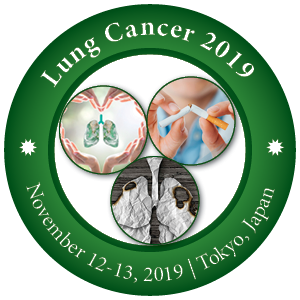Makarov Valery
Almaty Oncology Center, Republic of Kazakhstan.
Title: Thoracoscopic lobectomy and anatomical resection for peripherial lung cancer.
Biography
Biography: Makarov Valery
Abstract
Objective. Analysis of the immediate results of video-assisted thoracoscopic lobectomy and lung resection.
Materials and methods. For the period from 2014 to 2018, 118 patients with peripheral lung formation were operated on in the surgical department of the Almaty Oncology Center. The ratio of men to women is 62 and 56, respectively.
Results.The following operations were performed: lobectomy in 92 cases (78%), of which: upper lobectomy - 44 (47.8%), average lobectomy - 13 (14.1%), lower lobectomy - 32 (35%), bilobectomy - 3 (3.3%), anatomical resections - 24 (20.32%). All patients underwent extensive lymphadenectomy on the side of the operation. In 22 patients, for various reasons, a preservation of thoracotomy was performed. As a result of our analysis: the absence of N0 lymph node damage was observed in 82 patients (70%), the first-order lymph node damage N1 - 13 (11%), N2 - 13 (11%), N3-5 (4%) , NX– 5 (4%). Most patients are activated on the first day after surgery.There was no mortality. Summing up the analysis, we want to note that the complication rate is 12.2% (13 patients). Of these, bleeding - 6 cases, in 4 cases, conversion to a minithoracotomy was necessary in order to ensure adequate surgical hemostasis. The average postoperative bed of days is 5.8. 20% of patients were discharged on the 5-6th day after surgery. 5-year survival at stage I - 72%.
Conclusion. An analysis of the direct results of the study allows us to conclude that video-assisted thoracoscopic surgery is a highly effective, minimally invasive, safe method of treating peripheral lung cancer, which allows us to recommend it for wider use in oncological practice.
Key words:
lung cancer, epidemiology, treatment of lung cancer, videothoracoscopy, VATS technique.

